Named after the Princess Louise Caroline Alberta, Lake Louise is famous for its striking emerald turquoise colour, created by the rock flour carried into the lake by the melt water of the daunting glaciers—such as Victoria Glacier—that tower above. Today, the area is not only famous for its stunning scenery and world-class hiking routes, but also extensive ski trails, river rafting, a thriving bear habitat, quaint tea houses and much more.
Included in our Lake Louise region is the nearby Moraine Lake, which is 8.7mioutside the village of Lake Louise. Moraine Lake is even more spectacular than Lake Louise. Famous for the view of the lake surrounded by the Valley of the Ten Peaks, the photo from the Rockpile overlooking the lake is one of the most photographed nature images in the world.
Table of contents
Which airport to fly into to get to Lake Louise
When to go to Lake Louise
How to get around in Lake Louise
Where to stay in Lake Louise
Where to eat in Lake Louise
What else can you do besides hiking in Lake Louise?
Dangers in the park
What else you need to know about Lake Louise
Canadian Rockies Articles
Lake Louise Village is located within Banff National Park. It’s roughly 115.0mi west of Calgary and about 37.3mi west of the town of Banff. You can reach Lake Louise from Calgary in about two hours. The Icefields Parkway (Route 93 North) connects Lake Louise with Jasper to the north. From Banff and the west, there are two routes to get to Lake Louise. The quicker option is Trans-Canada Highway (Route 1), but if you have some time the Bow Valley Parkway (Route 1A) is a more scenic alternative. You’re more likely to spot wildlife here and the scenery is spectacular.
Here we’ll take you through the basic overview of hiking in and around the village of Lake Louise—including how to get there, where to stay, where to eat, what to see and what to watch out for.
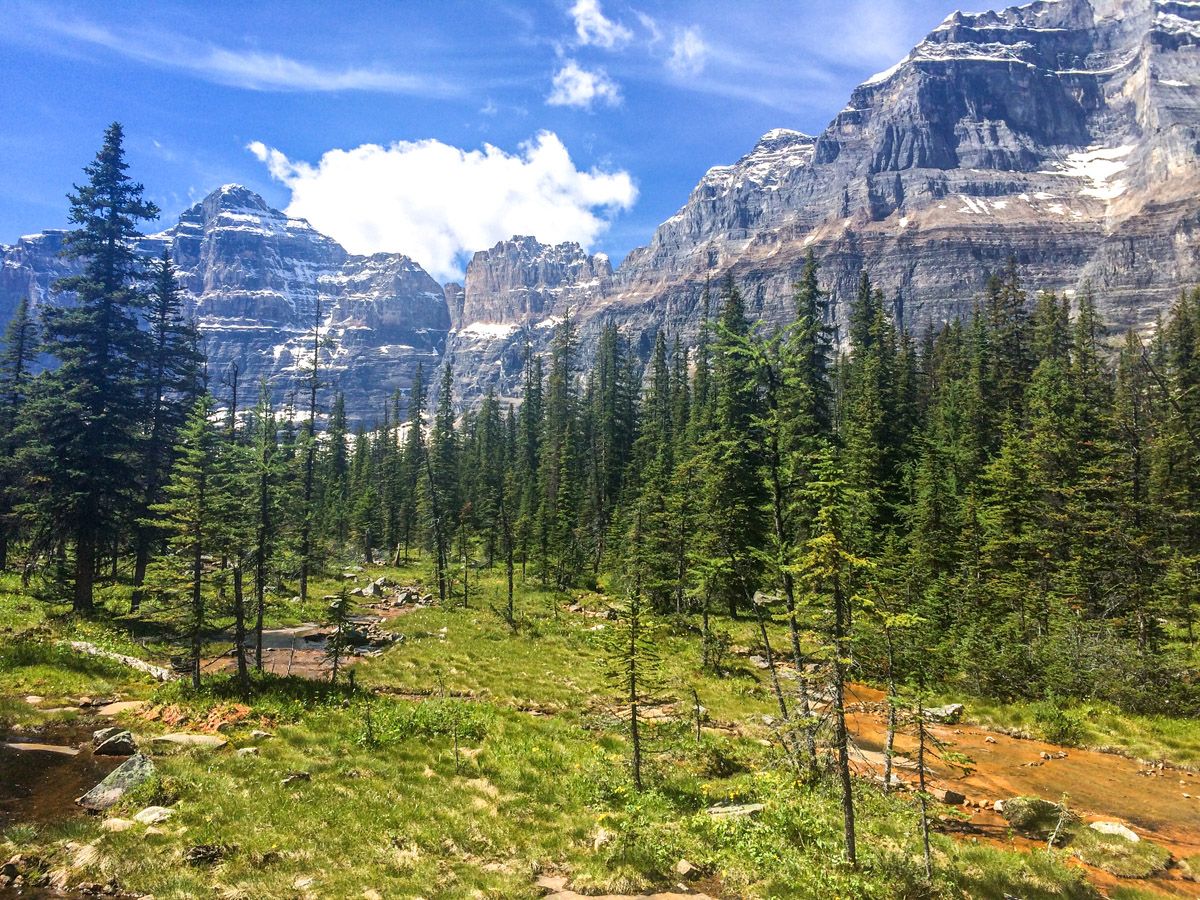
Which airport to fly into to get to Lake Louise
Lake Louise is approximately a two-hour drive from Calgary International Airport. You can opt to rent a car at the airport, or hire a private shuttle connections from the airport to Banff and then Lake Louise.
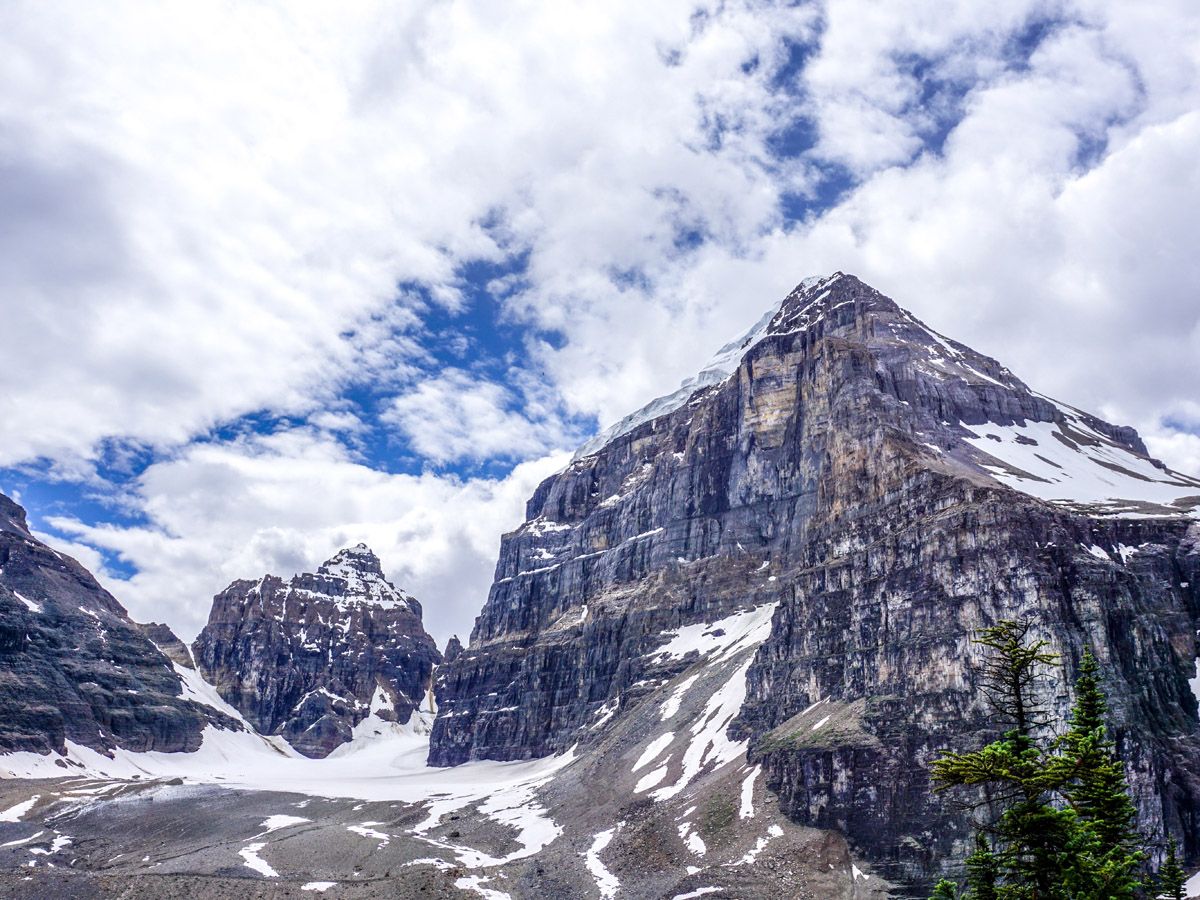
When to go to Lake Louise
The winter and summer seasons are the most popular times to visit Lake Louise, though it is possible to visit the area throughout the year. During the winter season, the excellent slopes provide ample motivation to attract skiers and winter sports athletes of all levels. Temperatures remain on average steadily below freezing, so visitors are warned to make sure they pack proper clothing and are aware of the risks of hypothermia.
During the summer season, the promise of spectacular vistas draws visitors to the area’s numerous hiking trails. The area boasts the magnificent Lake Louise, but also Moraine Lake, Bow Lake and Peyto Lake just a short hike away. During the summer not only are the lakes’ colours at their most spectacular, but also the weather is relatively mild, with low humidity. As well, it stays light out quite late, ideal for maximizing your potential to explore.
It’s not recommended to visit Lake Louise in the spring time because although the weather is still chilly, it’s outside of the ski season and the lake itself doesn’t typically thaw out until late May or early June. While this time of year will promise more tranquility and solitude that the winter or summer, you won’t be able to enjoy the Lake Louise’s most touted activities and attractions to the fullest—namely Lake Louise itself.
Autumn is a nice time to visit, especially because crowds will be small and the temperatures still moderate. It’s possible to hike or take a long mountain bike ride during the autumn, especially in September and early October, where you’ll be treated to some pretty beautiful scenery: the trees will be changing colours—a beautiful backdrop for the still unfrozen lake.
Average monthly temperature and precipitation:
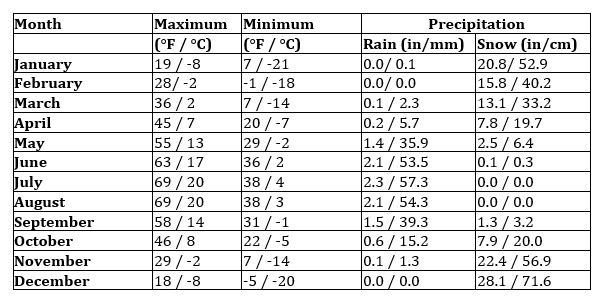
How to get around in Lake Louise
There are a few options to get around Lake Louise. The first option is to drive a private vehicle or call a taxi. There is also a free Lake Louise Free Bus/Shuttle Service, which operates every 30 minutes between Lake Louise Ski Resort and the Lake Louise hotels during both the ski season and the summer sightseeing season.
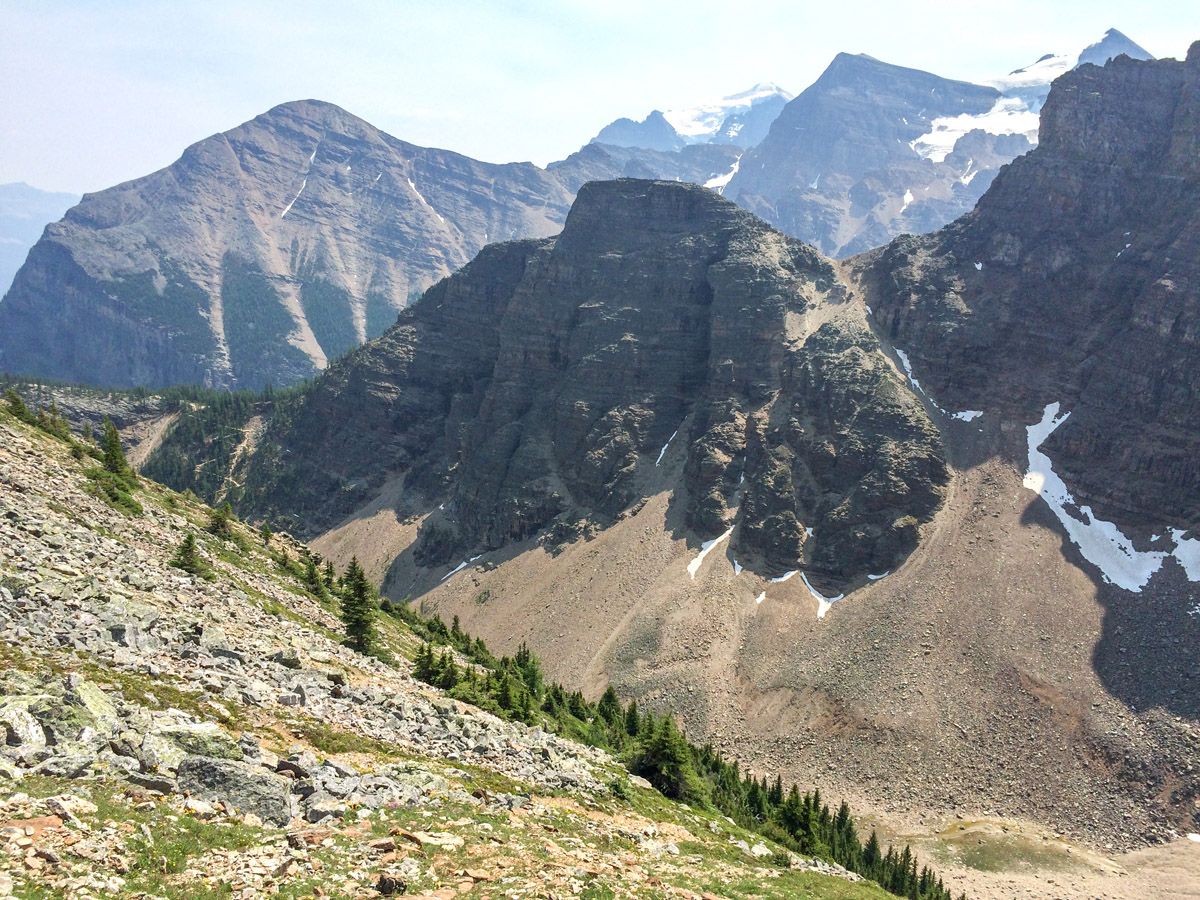
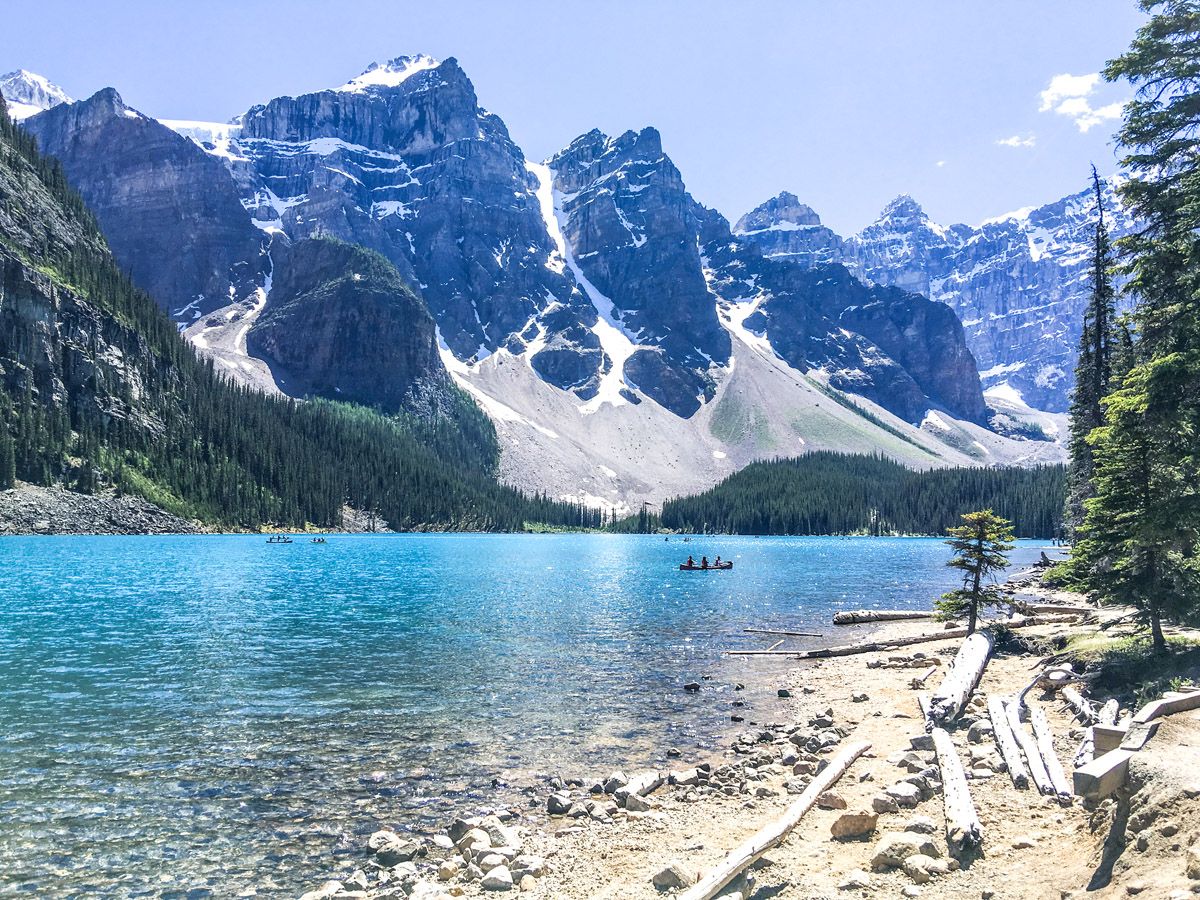
Where to stay in Lake Louise
Lake Louise is a small tourist village offering a small selection of very nice accommodation options. For more variety, head to nearby Banff, which has a vast amount of options to choose from—from budget friendly hostels to multi-family condominiums and luxury resorts.
The crown jewel of Lake Louise is the Chateau Lake Louise. Built on the shores of the world famous shimmering Lake Louise in the late 1890s, this 4-star resort offers patrons a wide variety of amenities such as a fitness facility, full-service spa, a four-diamond restaurant, horseback riding, canoeing and much more. It’s built into a spectacular backdrop of towering mountain peaks and the grandiose Victoria Glacier, and has been a popular spot for luxury accommodation for more than 100 years. The views from the lake-side rooms are truly spectacular.
For a taste of European elegance in the Canadian Rockies, we recommend The Post Hotel. With an award winning wine cellar, this was recently rated one of the World’s Most Beautiful Ski Lodges. Visitors can enjoy a full spa, including a salt-water pool, a variety of mountain lodge choices, various vacation packages, planned seasonal activities and more.
Another great option is the historic Emerald Lake Lodge. Located roughly 30-minutes from the village of Lake Louise, this stunning lodge is nestled into the shores of the mesmerizing Emerald Lake, you’ll find a series of cozy wooden cabins. You’ll have no cell service or TV signals here, however—making for the perfect combination of solitude and relaxation after a long day hiking and exploring.
Just behind the Chateau Lake Louise, you’ll find the historic Deer Lodge . Dating back to the 1920s this beautifully restored lodge features rustic interiors and quaint, cozy rooms to stay in. Relax by the blazing fire at the end of a long ski day or sit in the rooftop Jacuzzi with epic views of the Victoria Glacier.
For those on a budget, make sure to check out the HI-Lake Louise Alpine Center. This hostel is affordable, clean and sure to be full of an eclectic and interesting group of travellers. The alpine interiors fit seamlessly into the surrounding Rockies, and dorm rooms are simple and standard – but a good value and most likely the least expensive option in Lake Louise.
Those who are looking for a more outdoor experience can also camp at the Lake Louise Campground, open all year round. If you’re planning on staying in a soft sided camping unit you must stay inside the enclosed electric fence due to bear activity.
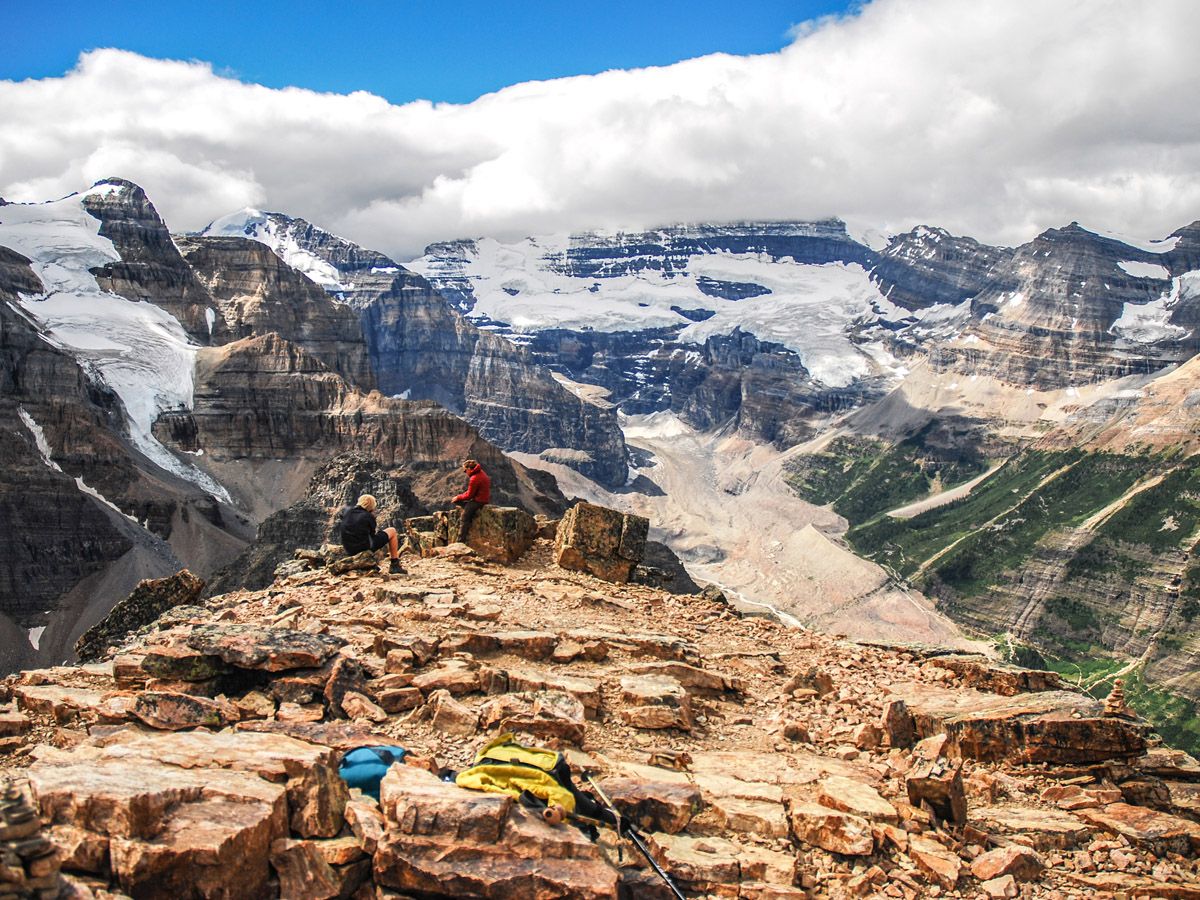
Where to eat in Lake Louise
Lake Louise and the larger area of Banff National Park have emerged into one of the Canadian Rockies top culinary locales. Local chefs specialize in regionally sourced “Canadian Rocky Mountain Cuisine” – such as seasonal produce, beef and bison from Alberta. However, you can also find a number of other cuisines from all over the world – from quick and budget friendly to luxurious haute cuisine.
We love Truffle Pigs Bistro. You’ll have to drive 20-minutes west to the tiny town of Field, BC, but we feel it’s worth the drive. With a focus on local and seasonal ingredients, they serve of variety of delicious and hearty dishes – breakfast, lunch and dinner such as lamb and saffron stew, boar wellington, veggie beet burger and black truffle pierogies.
One of the top rated restaurants in Lake Louise is the restaurant at the Post Hotel. The food is varied – from wild salmon to angus beef, caribou and lamb – and has an international vibe, led by a European-trained head chef. Expect to pay premium prices – but enjoy premium food in return of course. And don’t miss out on their award winning wine cellar, with more than 25,000 bottles to choose from!
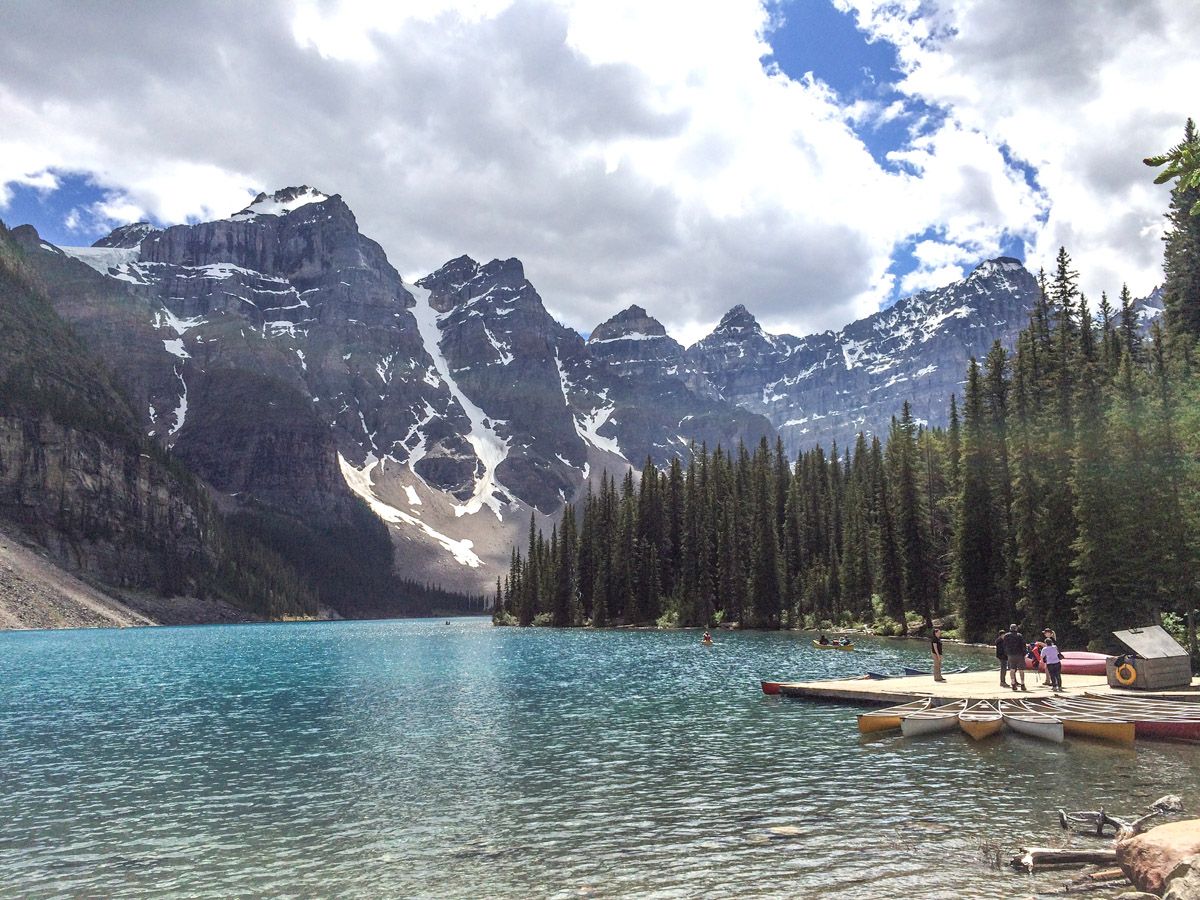
For no-fuss, budget-friendly dishes check out Bill Peyto’s Café. The food is simple but satisfying – from burgers to chicken sandwiches, pasta, fish and chips, chicken fingers, stir fry, and even Greek souvlaki.
Lake Louise is also famous for it’s quaint mountaintop tea houses—namely the Plain of Six Glaciers Tea House and the Lake Agnes Tea House. Both are typically busy, but provide a great reward after a few hours hiking. Routes to both are are included in our Lake Louise Top 10 hiking routes.
For a freshly made sandwich to go, don’t miss out on the Trailhead Café. Sandwiches, wraps, bagels and more can be made to order for both breakfast and lunch. As well, they serve a great cup of coffee! Another great go-to to-go spot is Laggan’s Bakery. Part bakery, part deli, they offer a wide variety of quick and sit-down options for under $10 such as mac & cheese, beef pie, pizza slices, tofu rolls in addition to their freshly made sandwiches.
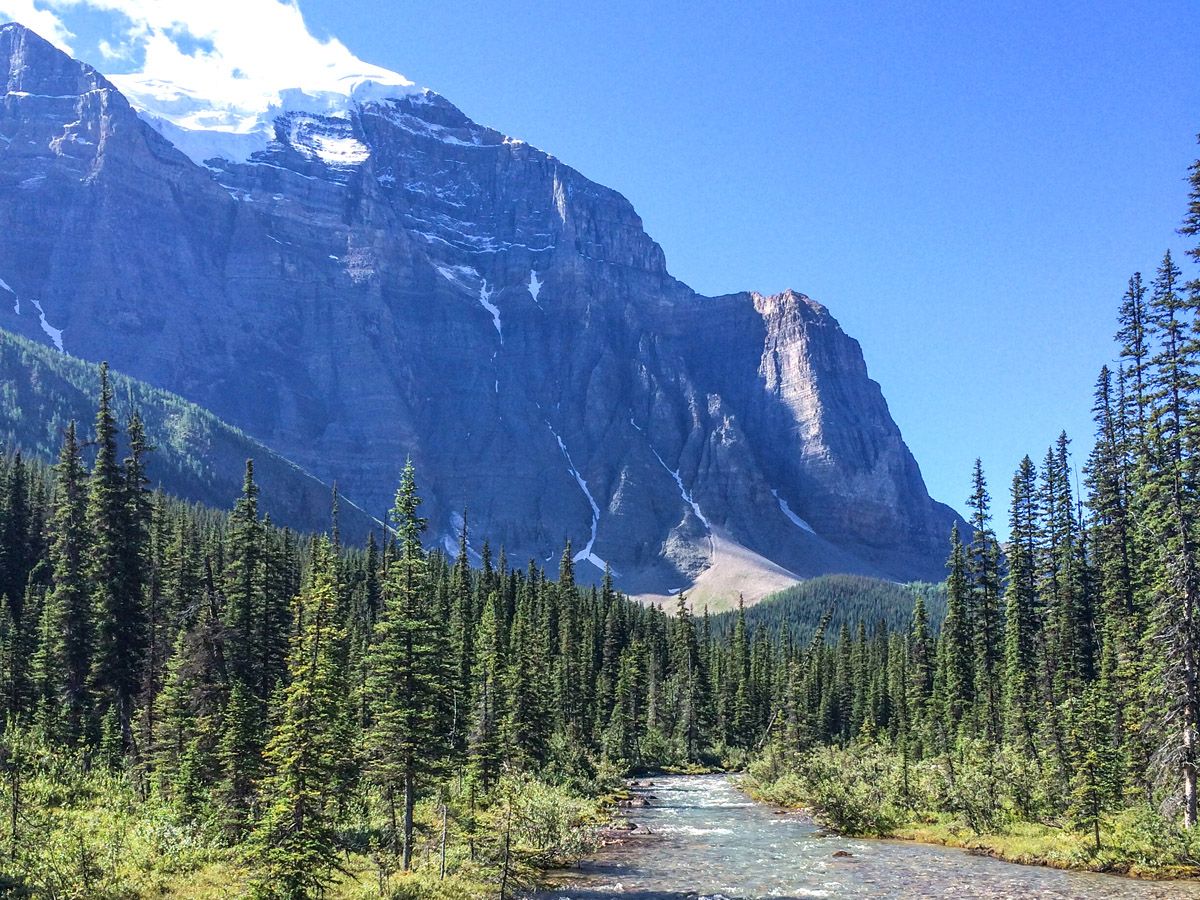
What else can you do besides hiking in Lake Louise?
Lake Louise offers hikers some of Canada’s most picturesque scenery. But what can you do there when you’ve had enough of the trails? Lots!
Head to the water for canoeing, white water rafting, fishing and swimming. You can rent boats at Lake Louise, Moraine Lake and Emerald Lake, and non-motorized boats can also be used at many lakes in Banff National Park. You can also channel your inner Wild West explorer with a horseback riding trip. Day tours are offered by a number of companies such as Brewster Adventures and Banff Trail Riders.
Take in a bird’s eye view of the majestic scenery from the Lake Louise Gondola. This is also one of the best places to view the area’s grizzlies – from the safety of an open or enclosed car high above of course. For something a bit more relaxed, check out one of the many spas located in Lake Louise – such as at the Chateau Lake Louise or the Post Hotel.
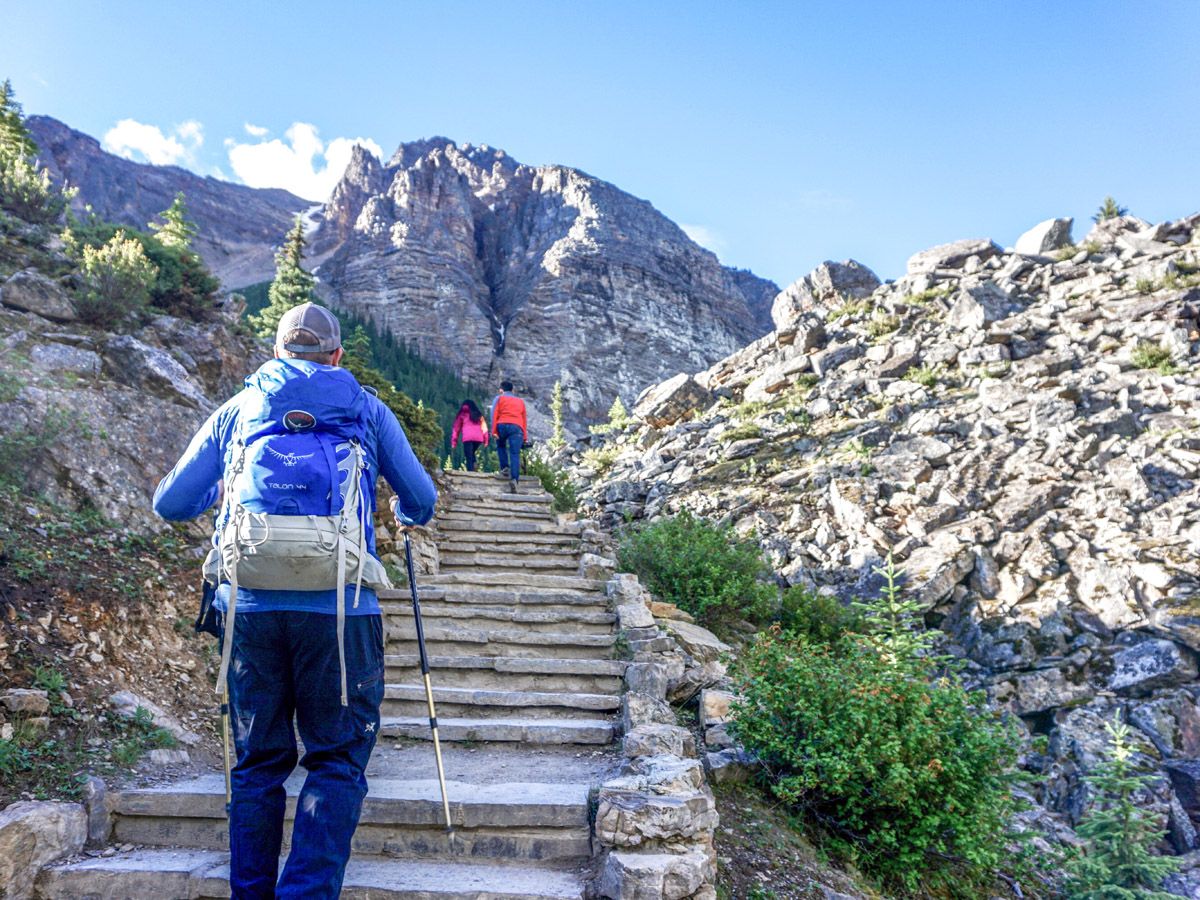
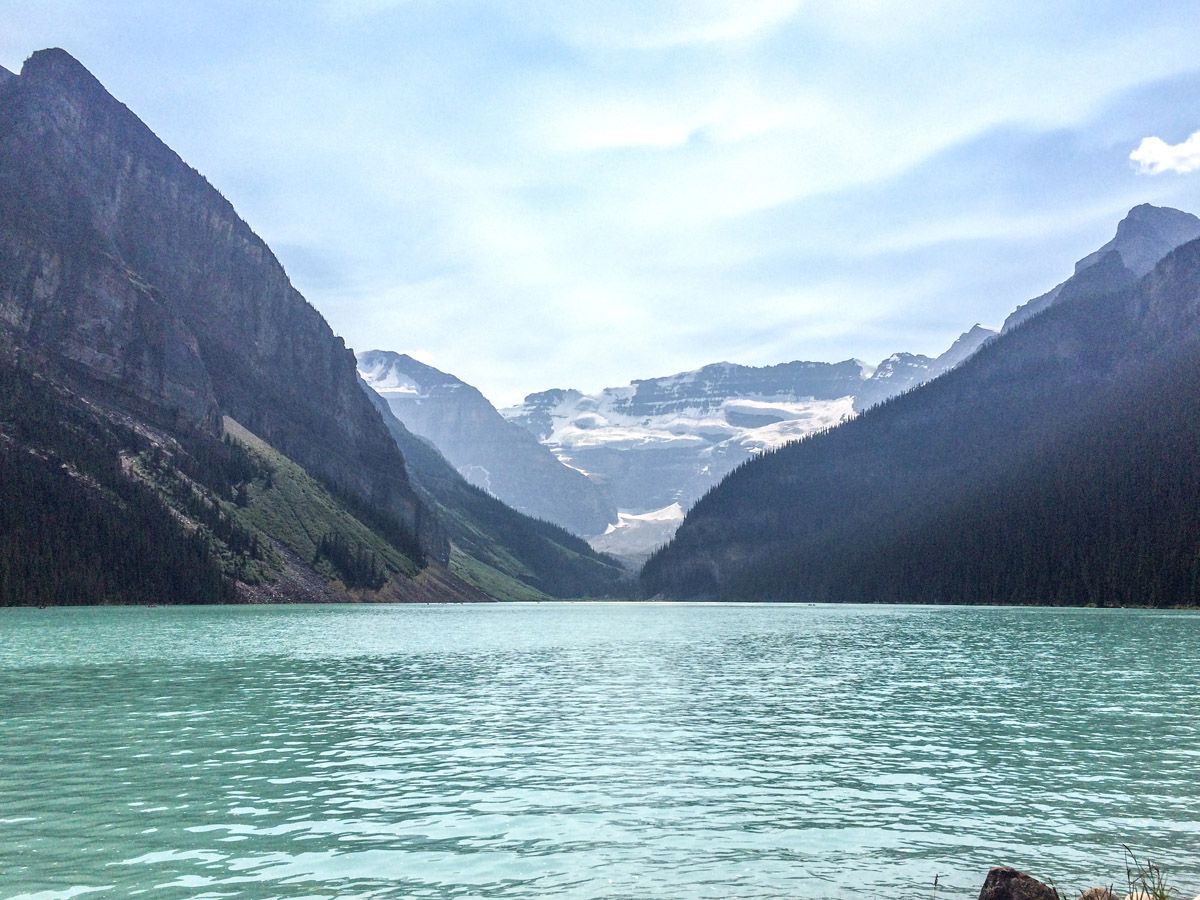
Dangers in the park
- Never feed or approach wildlife. Always carry bear spray.
- You must use the food storage cables or lockers provided to suspend or secure all food, garbage, toiletries (e.g. deodorant) and cooking equipment.
- Even though it may look pristine, make sure you boil, treat or filter all water before drinking it.
- Pay attention to avalanche conditions, especially at higher altitudes.
- Weather can change quickly. Make sure to bring multiple layers.
- The roads may be very crowded during peak seasons. Pay attention to wildlife, especially at dusk and dawn.
- Always bring sunglasses, a hat and wear sunscreen – even in winter. The sun at the alpine altitude is very strong.
- The nights can get very cold – even in summer. Pack a warm sleeping bag.
What else you need to know about Lake Louise
- Campfires are only allowed on campgrounds with provided fireboxes. On all other campsites a backpacking stove is required.
- Law protects all rocks, fossils, horns, antlers, wildflowers, mushrooms, nests and any other natural or historic object within the park. Leave them in their nature setting.
- Make sure you bring bug spray – especially for long hiking trips.
-
Canadian Rockies Articles
Check out this list of articles to help you plan your next holiday in the Canadian Rockies. Get tips and valuable information that will turn your trip into an incredible adventure!
Trip Planning in the Canadian Rockies
- Planning your trip to Banff National Park
- Planning your trip to Canmore
- Planning your trip to Castle Provincial Park
- Planning your trip to the Icefields Parkway
- Planning your trip to Jasper National Park
- Planning your trip in the Kananaskis
- Planning your trip to Lake Louise
- Planning your trip to Waterton National Park
- Planning a Family trip to the Canadian Rockies
- Planning a Family trip to Canmore
- List of tours in the Canadian Rockies
Canadian Rockies Hiking and Camping Articles
- Best Dog Friendly Hiking Trails in Alberta
- Best Family Hikes in Banff National Park
- Best Family Hikes near Calgary
- Best Larch Hikes in Alberta
- Frontcountry Camping in Banff National Park
- Underrated Campgrounds in Alberta
Canadian Rockies Backpacking Articles
- Best Backpacking Trails for Families in the Rockies
- Best Backpacking Trails in Banff National Park
- Best Backpacking Trails in Canada
- Best Backpacking Trails in Western Canada
- Best Backcountry Campgrounds in Banff National Park
Other Canadian Rockies Articles

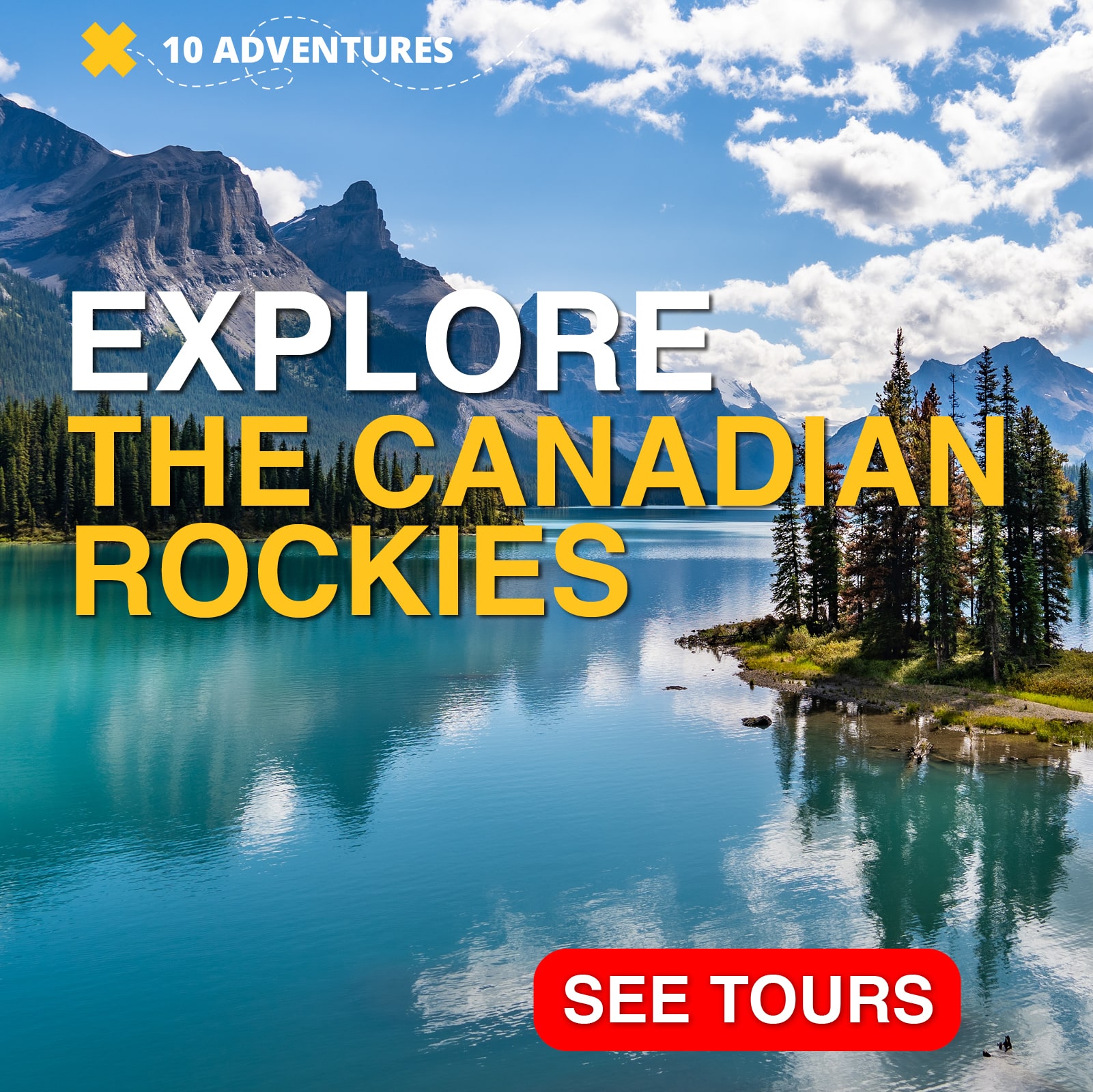
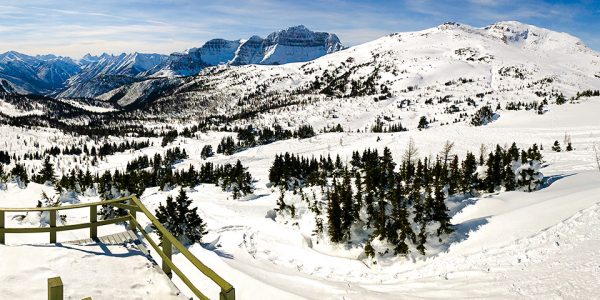

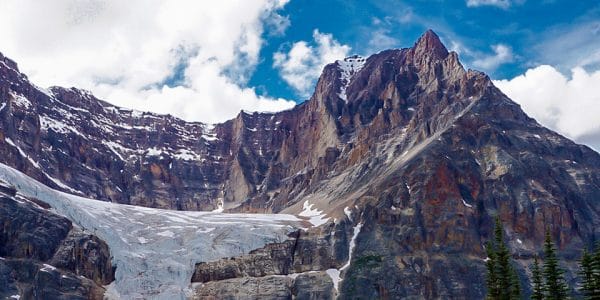
Comments